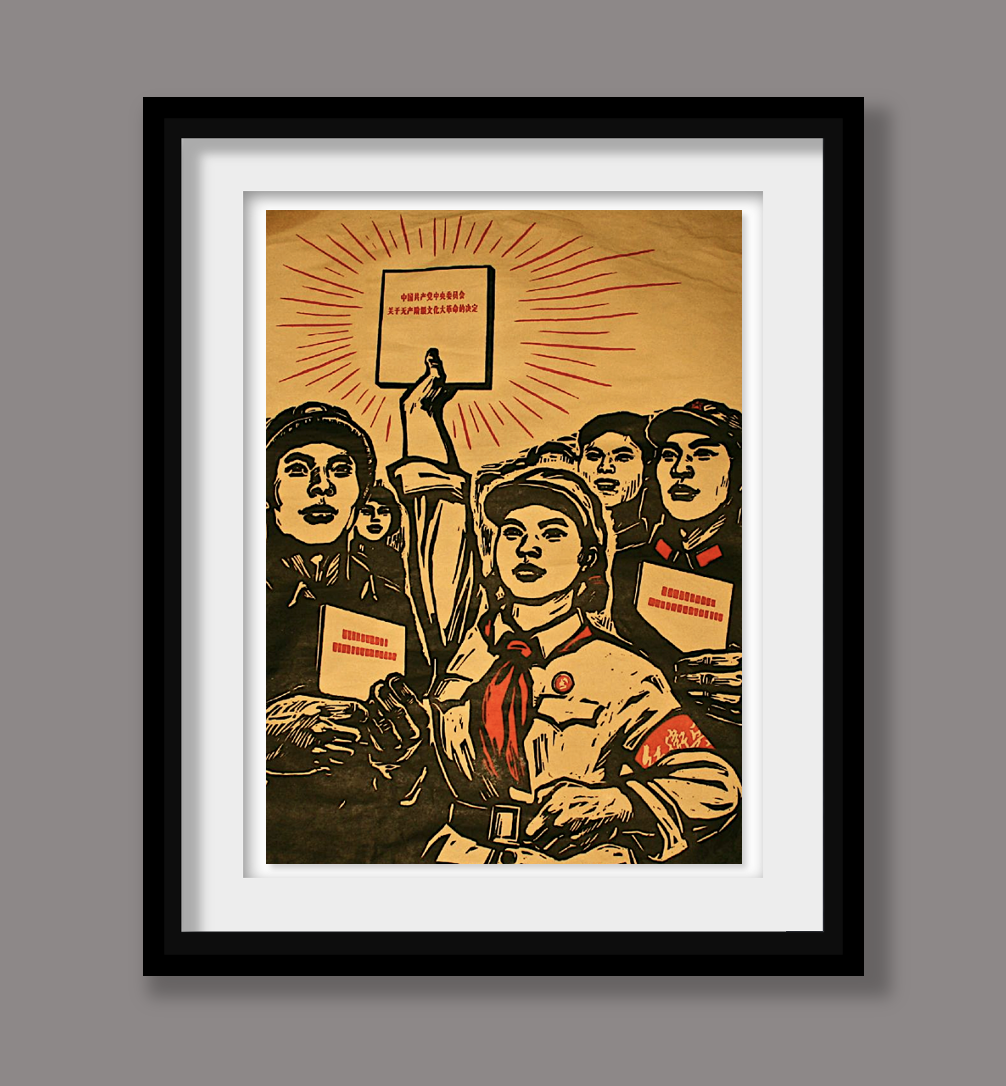

Title: Antique illustration Rare Chinese Communist Propaganda Art Poster
Shipping: $29.00
Artist: N/A
Period: Unassigned
History: N/A
Origin: N/A
Condition: Museum Quality
Item Date: N/A
Item ID: 6049
Chinese propaganda poster from the Cultural Revolution: Vintage Chinese Communist Propaganda Poster. What a great Image! Chinese Style: Rare Folk Art. This is a Chinese Cultural Revolution propaganda painting nostalgia illustrated poster. This poster is a part of Chinese culture and history. The poster was made to crush those persons in authority who are taking the capitalist road, to criticize and repudiate the reactionary bourgeois academic "authorities" and the ideology of the bourgeoisie and all other exploiting classes and to transform education, literature and art, and all other parts of the superstructure that do not correspond to the socialist economic base, so as to facilitate the consolidation and development of the socialist system. *All of the art is edited and chosen by us for its high quality and workmanship before posting. These collectibles have been selected with the artist & collector in mind. We are committed to enhancing our customer’s lives by discovering creating, and pointing out only the best art we can find in the world today. We Are Taste-Makers, Art Advisers, Consultants & Publishers Of Spectacular Art Stories. Our job is to be intermediaries between buyers and sellers. We are vetting for high end art patrons. We are determined to catalog the world's most exceptional art and share it with everyone.
Link: http://en.wikipedia.org/wiki/Chinese_Communist
The Communist Party of China (CPC), also known as the Chinese Communist Party (CCP), is the founding and ruling political party of the People's Republic of China (PRC). The CPC has its origins in the May Fourth Movement of 1919, where radical political systems like anarchism and communism gained traction among Chinese intellectuals. Stalin opposed the Chinese Communist Party in Xinjiang because he wanted to expand Soviet influence in the province. The CPC's ideologies have significantly evolved since its founding and establishing political power in 1949. Mao Zedong's revolution that founded the PRC was nominally based on Marxism-Leninism with a rural focus based on China's social situations at the time. During the 1960s and 1970s, the CPC experienced a significant ideological breakdown with the Communist Party of the Soviet Union under Nikita Khrushchev, and later, Leonid Brezhnev. Since then Mao's peasant revolutionary vision and so-called "continued revolution under the dictatorship of the proletariat" stipulated that class enemies continued to exist even though the socialist revolution seemed to be complete, giving way to the Cultural Revolution. This fusion of ideas became known officially as "Mao Zedong Thought", or Maoism outside of China. It represented a powerful branch of communism that existed in opposition to the Soviet Union's "Marxist revisionism". Following the death of Mao in 1976, however, the CPC under the leadership of Deng Xiaoping moved towards Socialism with Chinese characteristics and instituted Chinese economic reform. In reversing some of Mao's "extreme-leftist" policies, Deng argued that a socialist country and the market economy model were not mutually exclusive. While asserting the political power of the Party itself, the change in policy generated significant economic growth. The ideology itself, however, came into conflict on both sides of the spectrum with Maoists as well as progressive liberals, culminating with other social factors to cause the 1989 Tiananmen Square Protests. Deng's vision for economic success and a new socialist market model became entrenched in the Party constitution in 1997 as Deng Xiaoping Theory.